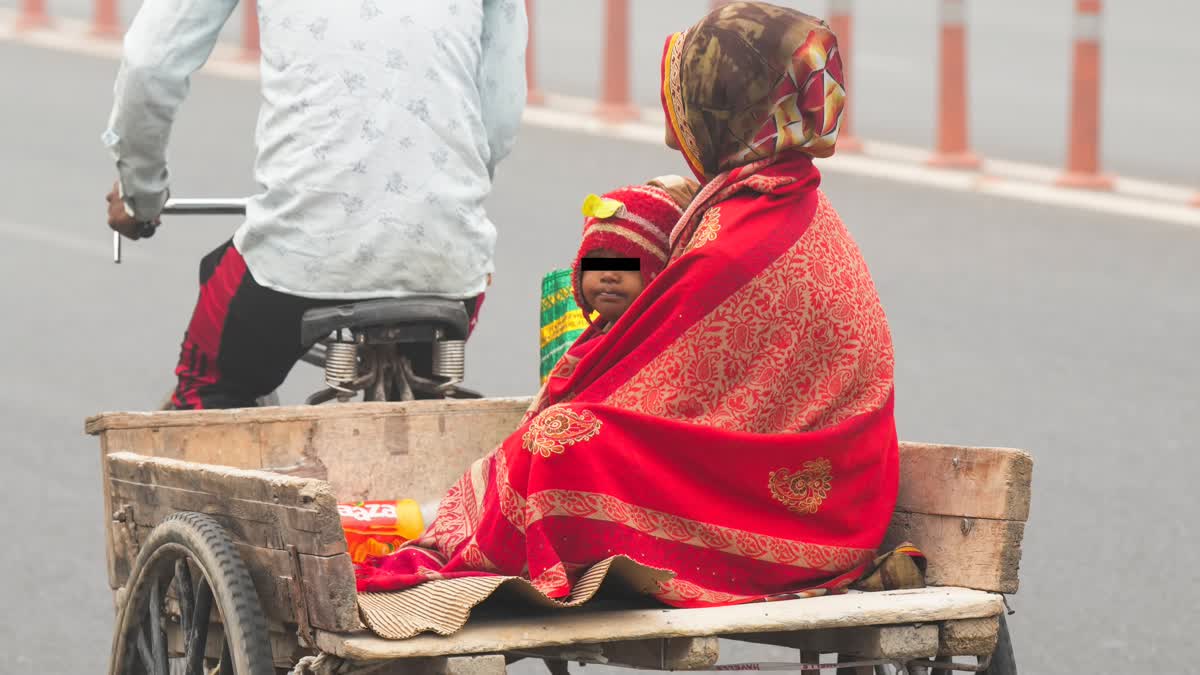New Delhi: As Delhi continues to choke on severe air pollution, the Supreme Court on Monday said the implementation of GRAP 4 restrictions will continue even if AQI level drops below 450 and asked the Delhi-NCR states to immediately set up teams to enforce these anti-air pollution restrictions. The apex court reiterated that it is the constitutional obligation of central and state governments to ensure citizens live in pollution free atmosphere, and criticised the Commission for Air Quality Management (CAQM) for adopting a "completely wrong approach", as it decided to wait for improvement in AQI levels, which delayed the implementation of stage 3 and stage 4 of Graded Response Action PIan(GRAP).
"The commission cannot wait for improvement of AQI," the court said.
A bench of Justices Abhay S Oka and Augustine George Masih said: "It is the constitutional obligation of central and state governments to ensure citizens live in a pollution free atmosphere, all possible actions should be taken at the level of governments to ensure that the AQI is brought down".
Online Schools in NCR, neighbourhood
A counsel informed the bench that students of grade 10 and 12 are still attending physical classes unlike other students and schools are also open in Noida, while requesting the court to stop the physical classes.
The bench said that all states, in the neighbourhood of the capital, will take immediate call on stopping physical classes of all classes up to grade 12.
Court raps CAQM for delaying GRAP implementation
The bench said that on November 13, the AQI crossed 401 and instead of the directing implementation of stage 3 of GRAP, the CAQM directed that stage 3 should be implemented from November 14. "Same is the case with the implementation of stage 4 (GRAP), the order passed on November 17 records that the AQI crossed 450 at 6 PM, but still the direction was issued to implement stage 4 from today morning," the bench noted.
It said that the approach adopted by the sub-committee of the CAQM is contrary to the observation made by the apex court in the November 2018 order. "The direction was to EPCA (predecessor of the commission) to take preventive steps under GRAP, without strict adherence to pollution stages," Oka recalled.
'Wrong approach'
He added that the approach adopted by the commission is that it decided to wait for improvement of AQI, therefore stage 3 and stage 4 was GRAP delayed, and added, "this is completely a wrong approach". "Even in anticipation of AQI crossing the threshold limit it is the duty of commission to start immediate implementation of grade 3 or grade 4 as the case may be. The commission cannot wait for improvement of AQI," the bench said.
Direction to NCR-states
The bench said the next issue is data of which agency should be treated as official data of AQI level, and parties have to be heard on this aspect. "We direct all governments of the NCR area to strictly implement stage 4 of GRAP. All states will immediately constitute teams for monitoring implementation of actions which are required to be taken under stage 4," said the bench.
Oka said the NCR state governments and the central government will have to immediately take call on actions provided in clauses 6, 7, and 8, of stage 4, and place the decision on record before the next date of hearing.
Redress grievances
The bench said the Delhi government and other governments should create grievance redressal mechanisms to enable the citizens to lodge complaints of violation of actions under stage 4 (GRAP).
The bench was told that such a mechanism already exists. It then asked the commission to look into the complaints immediately and take action.
NCR, States to file compliance report
"Till further orders are passed by this court, the implementation of stage 4 will continue even if AQI level drops below 450. All state governments and the central government will file compliance affidavits till Thursday," Oka said.
"We also direct the commission to provide for more stringent actions in stage 3 and stage 4, and not to leave it at the discretion of governments and local authorities. The commission will immediately take a call on this aspect," the apex court said.
Get satellite data to monitor stubble burning
The apex court asked the Centre to make immediate arrangements for getting data from either Korean stationery satellites or any other stationery satellites so that data of stubble burning throughout the day can be made available. The bench said this data will enable states to take immediate actions.
The apex court also said that the commission and Centre should also involve ISRO in taking this step so that all instances of farm burning, during the day can be reported to the concerned states.
The apex court was hearing a plea seeking directions to curb air pollution in the national capital and adjoining areas.
Read More
- As Delhi Chokes, SC Raps AAP Govt: 'No Scaling Down Of GRAP 4 Without Court Permission'
- Atishi Attacks BJP Over Air Pollution, Says North India Facing Medical Crisis
- Capital Chokes: Hazy Frames From Delhi Amid Alarming Pollution Levels
- BJP Distributes Masks As AQI Hits 'Severe Plus' Category In Delhi, Slams AAP For 'Negligence'



